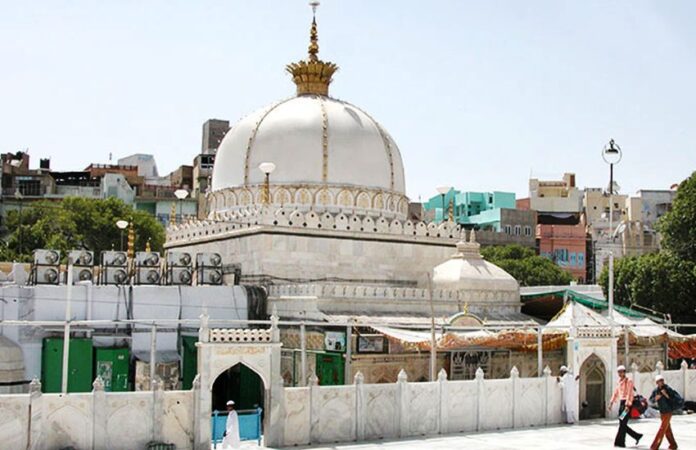TCN News Desk
Ajmer: A legal twist has emerged in the ongoing dispute over the Ajmer Dargah (shrine). Five new applications have been filed in a court in Ajmer to intervene in a petition that seeks to declare the shrine of Khawaja Gharib Nawaz a Hindu temple. The next hearing is scheduled for January 24.
The five parties on December 20 appealed to become intervenors in the case. They include Zainul Abedin Ali Khan, the deewan of the Ajmer Dargah, the Anjuman Syed Zadgan (a body of Khadims) and other concerned individuals. The applications were acknowledged by the court, which set the next hearing for January 24 to allow the petitioner’s response.
Filed by Vishnu Gupta, the president of Hindu Sena, the petition claims that the dargah is built atop an ancient Shiva temple and calls for a survey to unearth evidence of the alleged temple beneath. The court had previously admitted the petition on November 27 and issued notices to the Ajmer Dargah Committee, the Ministry of Minority Affairs and the Archaeological Survey of India (ASI) for their responses.
Advocate Yogendra Ojha, the lawyer who is representing Gupta, informed the media that the Dargah Committee, the Ministry of Minority Affairs and ASI had requested more time to gather documents to substantiate their replies, specifically regarding the claim of a pre-existing Shiva temple.
Advocate Nasiruddin Chisti, who is representing Khan, argued that his father had been the spiritual leader of the dargah and therefore he should be recognised as a party in the case.
Similarly, Sarwar Chisti, secretary of the Anjuman Syed Zadgan, filed an application on behalf of the Khadim body to be included in the proceedings.
The petition has sparked strong reactions. Muslim leaders have condemned it as divisive and a threat to national unity and harmony. They argue that such legal moves could disrupt the peaceful coexistence between religious communities in India. The Ajmer Sharif Dargah, one of the most revered Muslim shrines in the country, is an iconic site in Ajmer. Its history is tied to Sufi saint Khwaja Moinuddin Chishti.
Chishti, a 12th-century Persian Sufi, was said to have arrived in Ajmer in 1192 and made it his base until his death in 1236 AD. The shrine was later constructed by Mughal emperor Humayun to honor the saint. Notably, both Mughal emperors Akbar and Shah Jahan made pilgrimages to the dargah and contributed to the complex, which includes several mosques and courtyards surrounding the saint’s tomb.


